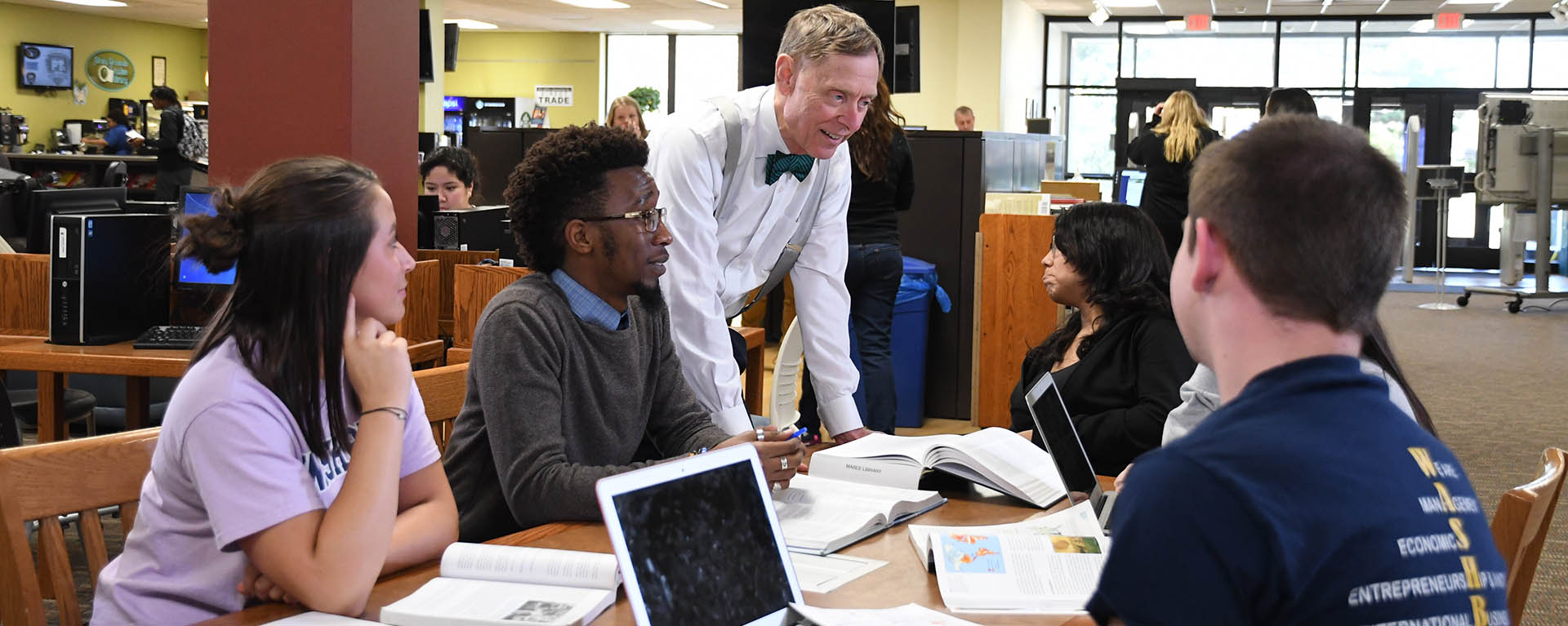
How Career Engagement Can Assist You with the Interview Process
- Mock interviews
- Individual interview guidance
- Interview reference materials
- Job/interviewing leads
- On-campus job interviews
- Class or student organization presentations on interviewing
Schedule a visit to Career Engagement for a mock interview or interviewing assistance!
FIRST IMPRESSIONS
- Dress professionally and conservatively
- Maintain a neat hairstyle
- Cover all visible tattoos
- Remove visible piercing jewelry - limit to one earring per ear for women, none for men; no nose, eyebrow, or lip piercings
- Wear perfume or cologne VERY conservatively
- Wear minimal amount of jewelry
- Provide interviewer with your resume
- Smile - it's a universally attractive trait
- Walk with confidence
- Maintain good eye contact
- Shake hands firmly
- Arrive 10 minutes early at interview location
- Be very polite to the receptionist
- Greet the interviewer in a friendly, businesslike manner
- Relax, act natural, and let your personality shine
- Leave cell phone in the car
- Use interviewer's first name (unless or until asked to)
- Arrive late
- Sit down (until invited)
- Show anxiety or lack of interest
- Look at your watch
- Act inferior or superior
- Talk too much - or too little - in your responses
- Be rude to anyone
- Mumble, bluff, or answer dishonestly
- Criticize yourself
- Be negative when speaking about your employers
- Ask about your salary or benefits
THE ART OF PREPARTION
- Research the employer
- Assess your strengths and weaknesses
- Analyze and compare previous job responsibilities to those of position sought
- Remember that volunteer and internship experience count as relevant experience
- Develop and rehearse your responses to typical interview questions
- Frame answers to show job effectiveness
- Have a mock interview at Career Engagement or use Optimal Interview
- Prepare thoughtful questions to ask the interviewer
- Remember -- practice makes perfect
- Tell me about yourself.
- Why should I hire you?
- What are your major strengths?
- What are your major weaknesses?
- How does your previous experience relate to the position?
- What are your career goals?
- What will your former employers (or teachers, if you are a recent student) say about you?
- Why are you interested in this position?
- What do you know about our company?
- Tell me about a time when… (behavioral questions)
A few more are in the interview handout linked at the bottom
- Ability to work in a team structure
- Ability to make [good] decisions and solve problems
- Ability to verbally communicate [effectively] with persons inside and outside the organization
- Ability to plan, organize, and prioritize work
- Ability to obtain and process information
Can you give examples of how you have shown these?
Use action words in your interview responses just as in your resume:
Achieved, Accepted, Analyzed, Compiled, Created, Determined, Developed, Directed, Instructed, Managed, Mediated, Organized
Prepare “short stories” using these types of words to answer the behavioral (“Tell me about a time when you…”) questions.
- What skills are considered most useful for success in this position?
- How often would my performance be reviewed?
- What kind of training program is offered?
- What would be a typical first assignment?
- What career progression do you see for someone in this position?
- What type of orientation would I have?
- More HERE
FOLLOW-UP AFTER THE INTERVIEW
- Send follow-up email thank-you immediately; thank-you letter by the next day
- Allow the employer one week to ten days to contact you
- Take advantage of time by scheduling additional interviews with other companies
- Remember that interviewing is a skill that improves with practice
- You have rights to protect against discriminatory interview questions
- Discriminatory questions are usually those items classified as non-job related
- Sex, race, age, disabilities, national origin, and religion are categories employers may not ask about during interviews

